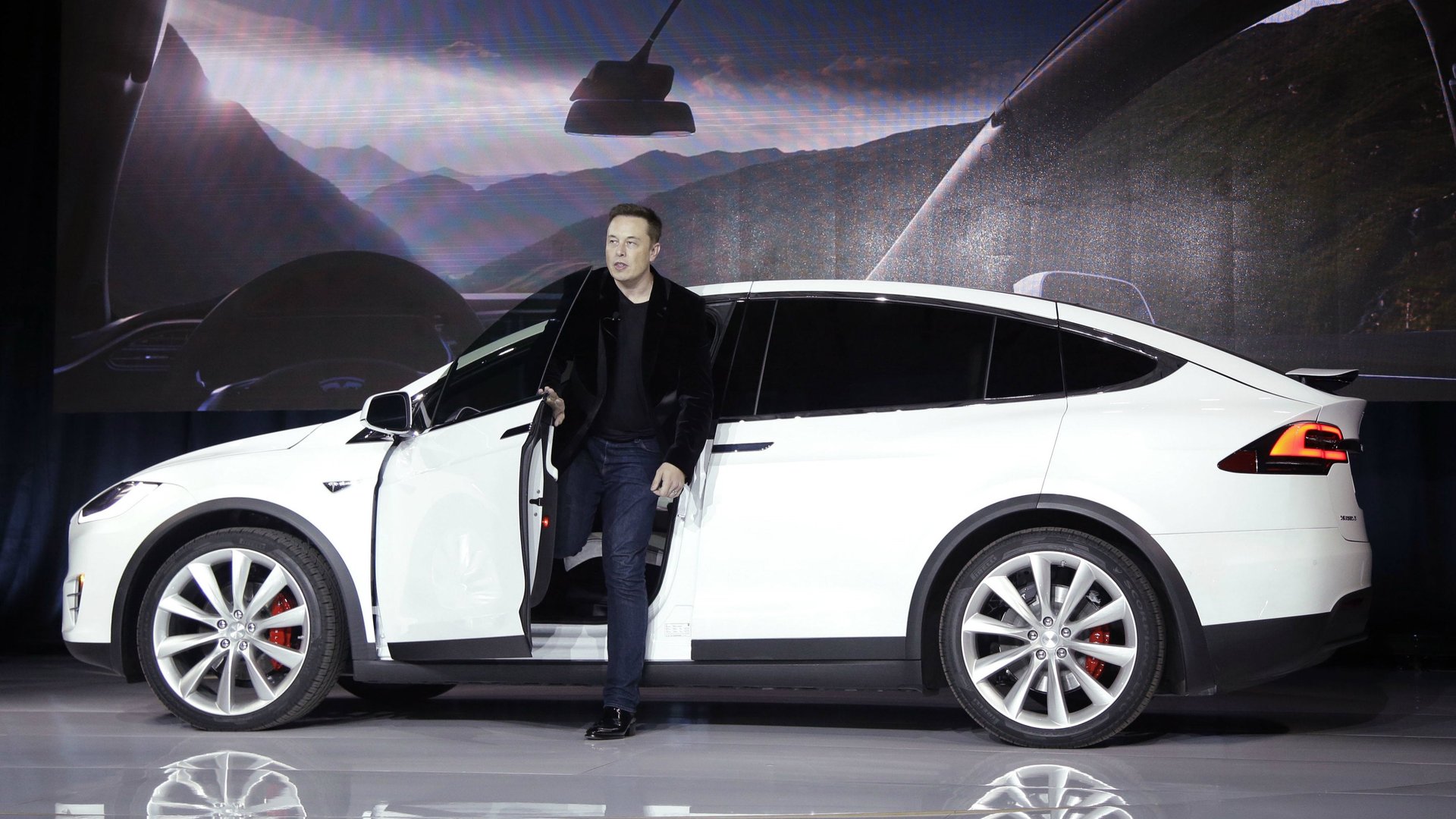Norway is planning to pull the plug on its wildly successful electric-car incentives
Norway is by far the world leader in electric cars. The zero-emission vehicles make up almost 30% of the total market. But now, the government is putting the brakes on some of the subsidies that revved up this market. A proposal, presented as part of next year’s budget, has been put forward to remove a tax exemption on electric vehicles that weigh more than two metric tons.


Norway is by far the world leader in electric cars. The zero-emission vehicles make up almost 30% of the total market. But now, the government is putting the brakes on some of the subsidies that revved up this market. A proposal, presented as part of next year’s budget, has been put forward to remove a tax exemption on electric vehicles that weigh more than two metric tons.
The move has been dubbed the “Tesla tax,” as it’s most likely to effect the American company’s models, particularly the Tesla Model X, an SUV. There are more than 13,000 registered Teslas in Norway, according to data from the national statistics office. The tax would increase the cost of buying a new Tesla X by about 70,000 kroner ($8,850), local media said (link in Norwegian).
Norway’s finance minister, Siv Jensen, justified the proposal by arguing that the heavy cars caused as much damage to the road as gasoline and diesel cars, so electric-car owners should contribute more to the cost of upkeep. Still, owners of Teslas and other electric cars would still benefit heavily compared to other vehicle owners.
The Scandinavian country has an ambitious target for new vehicles sales to be exclusively zero-emission models by 2025. Countries like France and the UK hope to achieve the same by 2040. Over the years, Norway has offered enticing subsides and other perks to encourage people to buy electric cars, such as no city tolls, free parking, free charging, and permission to drive in bus lanes. In February, the number of electric cars in Norway surpassed 100,000.
The Norwegian government has been considering ways to curb the incentives for a while, amid criticisms that the perks allow rich households to buy pricey Teslas cheaply and significantly increase congestion in the capital, Oslo. However, the traditional center-right allies of the current government have spoken out against the Tesla tax, because the subsidies had been agreed to run through 2020, according to AFP.